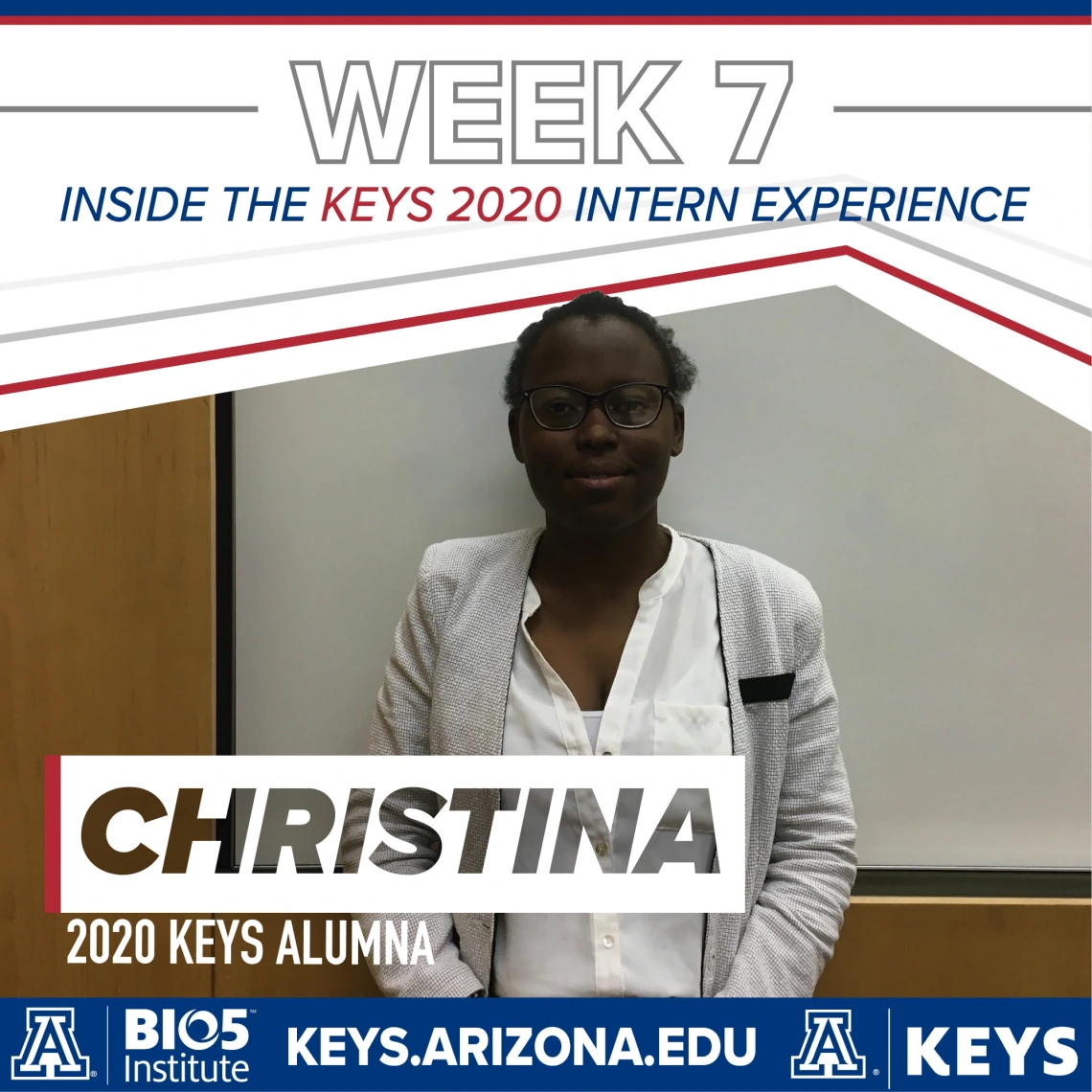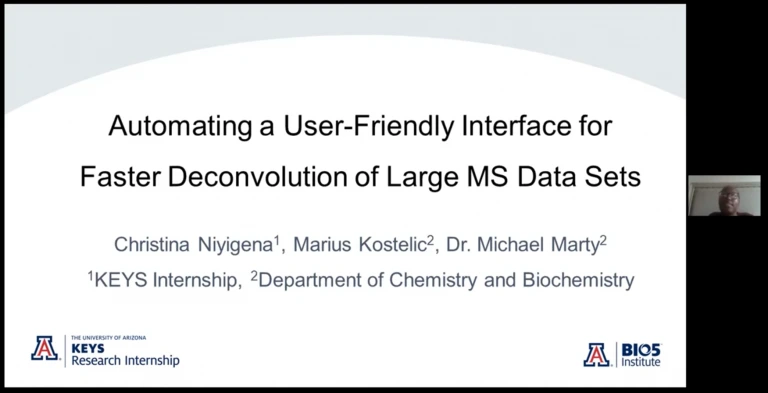Virtual Summer Research Program Empowers Student to Embrace the Unknown
The KEYS program not only enabled Christina Niyigena to develop tools to simplify data processing methods, but it provided her an opportunity for personal growth.

Christina Niyigena’s journey in the Keeping Youth Engaged in Science (KEYS) summer program began with uncertainty.
Because she didn’t have any prior computer programming experience, the recent Sahuaro High School graduate was nervous to complete a challenging data science research project without physically working alongside her mentors. Dispute her initial hesitation, Christina successfully completed two projects using the Python programming language with the constant, virtual support of Dr. Michael Marty and his graduate student Marius Kostelic.
Though she is satisfied to have conquered a complex computer science internship, the incoming University of Arizona freshman is most proud of her personal growth during the last seven weeks.
Creating tools to analyze complex data
Mass spectrometry (MS) is a technique used by many scientists to study the structure of proteins and their interactions with one another. Because MS data is often complex and difficult to analyze, Christina sought to develop a new user-friendly Python tool to help researchers import multiple MS datasets from Microsoft Excel into Dr. Marty’s UniDec platform and to export key results.
Christina’s personality shined though the design of her purple and orange poster, entitled “Automating a User-Friendly Interface for Faster Deconvolution of Large MS Data Sets.” During her final presentation on July 23, Christina provided a thorough explanation of the different programming software she used to develop the new data analysis tool. Through Pycharm, a user-friendly programming environment that organizes complex Python code into a beginner-friendly format, Christina first made a function called “ms” that imports Excel data. Then, she created three additional functions – two that organized data by variables in specific columns and rows, and a third that retrieved data from a specific row and column.
Christina tested the utility of her commands with MS data collected on nanodiscs, synthetic models of cellular membranes, and successfully imported the datasets and extracted specific information with her codes. The functions Christina created can now be imported into the UniDec platform for researchers to use in various applications like screening drug targets and characterizing proteins.
“There are a lot of biology and biochemistry applications, like drugs and forensics, for our research,” she said. “I know what I did was really important.”
Drawing upon her years of speech and debate experience, Christina delivered her presentation with confidence. Christina is also grateful for the time Kostelic spent practicing with her to ensure she used the proper language to describe her work, as well as feel prepared for questions from the audience.
An avid language-learner, Christina is looking forward to expand her knowledge of Python during college by taking an elective class on programming. She hopes to apply her baseline knowledge of computer science to a neuroscience or biomedical engineering research project in the future as she pursues her goal to become a medical doctor.
Personal transformation
As a high-achieving individual, Christina admits she often finds it difficult to ask others, especially respected professors, for help. Through her KEYS experience, Christina learned that needing support is not a weakness, enabling her to find the strength to seek assistance on all tasks, no matter the difficulty.
“Through this program, I learned to be open with my struggles and to be willing to take that step to get help,” she said.
Christina now views asking for help as a necessary self-care practice that she plans to implement for years to come.
Further reflecting on her personal growth, Christina has found a new appreciation for her resilience, flexibility, motivation and determination. Computer science was a subject entirely out of her wheelhouse, but because she was able to approach the uncertainty and difficulty associated with this remote research internship, Christina now has the confidence to pursue goals previously thought to be out-of-reach.
“This is the coolest experience I’ve ever had in science,” Christina said. “The KEYS program has really opened doors for me, and I’m now more likely to try new things.”

Christina Niyigena used several computer programming softwares to develop resources for other investigators' data analyses.

